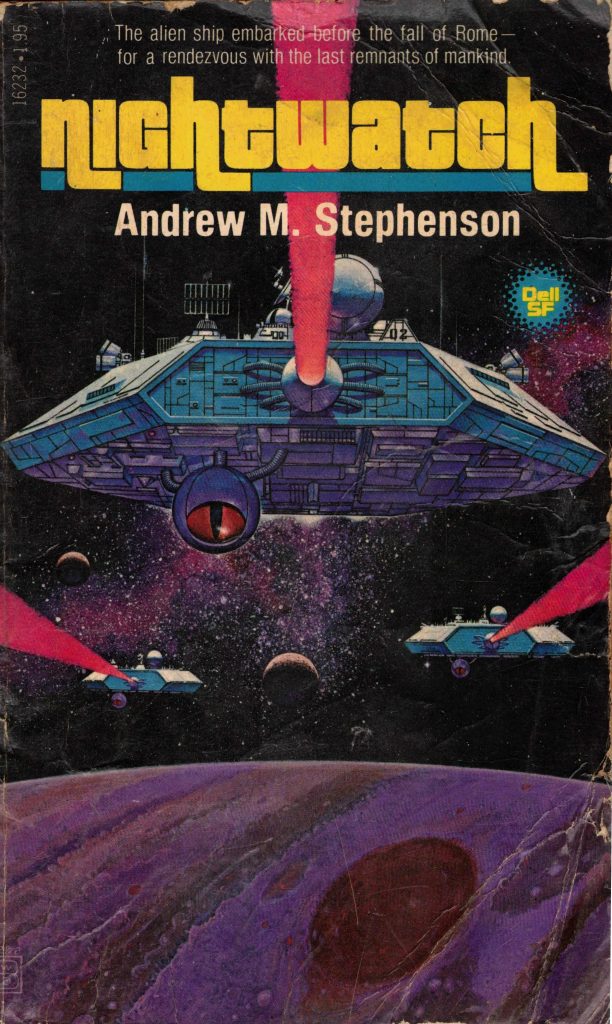
Nightwatch, by Andrew M. Stephenson
Too much and too little compete for the reader’s inattention in this barely workable SF book in which the most human characters are robots. The protagonist, though purportedly a human earthman, seems to understand human emotions as poorly as the author understands actual human beings and such things as plots for novels. The science is likely authentic, but I couldn’t care after wading through boring first-person narration to get to boring third-person narration. In a trick stolen from Salinger’s “For Esme—With Love And Squalor” the narrative point of view shifts halfway through the novel, a choice which leaves this reader suspecting that the author had already written one half one way before deciding that the book needed to be in the other person, and couldn’t be bothered to go back through the already written portion and change it. There are big ideas in the book: man’s destruction of the world, robotic consciousness, contact with aliens. Yet Mr. Stephenson fails to bring any of this to life, muffling the big stuff with meandering maundering about that maybe-girlfriend and this maybe-enemy. There may be a good story here, but its buried so deeply that it would be easier to start from scratch.
Harlan Ellison once spoke of the ‘one-word people’, people who could be understood by knowledge of the one word, the one thing which motivated all their actions and determined all their responses to the world around them. Mr. Stephenson’s protagonist seems to be the opposite of a ‘one-word person’, taken to absurd extremes, in that the pages are filled with words, word, words, and yet no clearer picture ever emerges of the pallid nonentity at the heart of this otherwise traditional Sci-Fi tale. He talks … to robots, to aliens, to maybe-not-quite girlfriends, to enemies, to maybe-friends, to himself … mainly to himself. He thinks deeply in his shallow channel of thought. But none of the words matter. Hell, I’ve already written more about Nightwatch than ever I planned to, leaving me to wonder if I, too, have succumbed to its malefic spell. Everything in the book—and quite a lot happens, though at times it’s hard to realize it—everything happens to him; nothing is done by him, save the endless and pointless brooding in both the first-person and third-person halves of the book. The protagonist* travels to the Moon on a secret mission, is thrust in the middle of mysterious (mostly because poorly written) plots by unknown political factions, watches the Earth destroy itself in devastating war, meets alien beings of unimaginable power, and all that … just sort of … happens. He wanders through most of the novel, along with his robot friend who is confined to a box, intermittently meeting with other supposed human beings, including one of the more unbelievable characters in fiction, but not in a good way, Steelyard Jones. (About whom I won’t say more; you can read the book yourself if you’re that curious.) At the end, the book ends, and I was grateful for that at least, since there were portions of the novel which seemed truly interminable.
* Perhaps ‘anagonist’ would be a better term, meaning a character who affects nothing, and who is not affected by anything.
Leave a comment